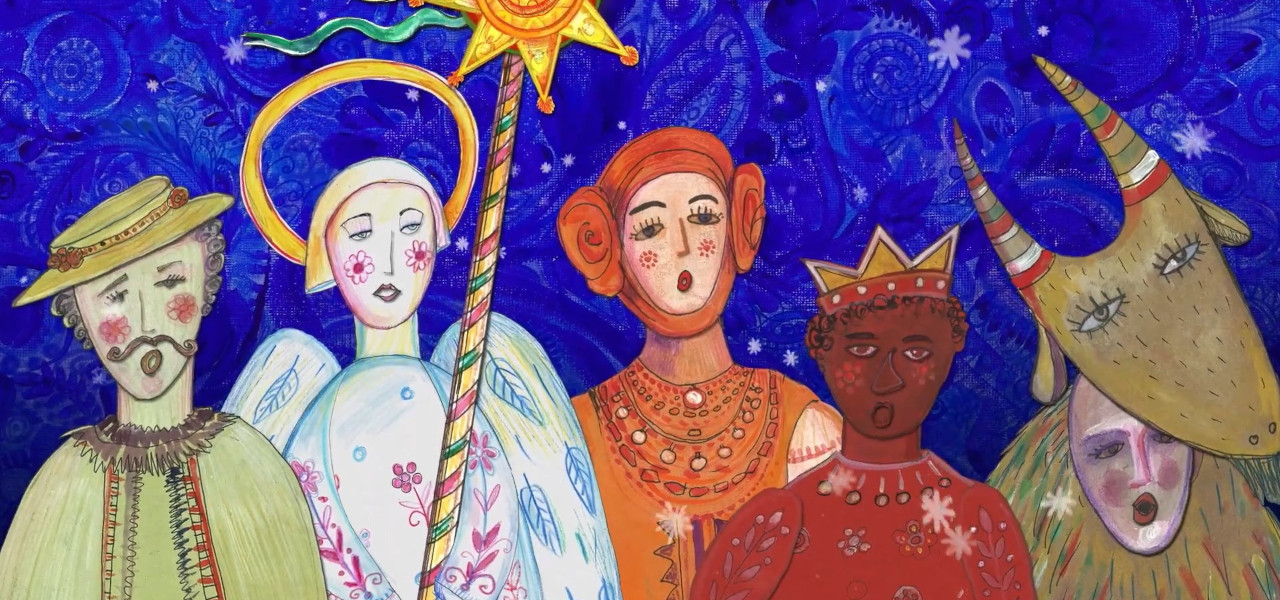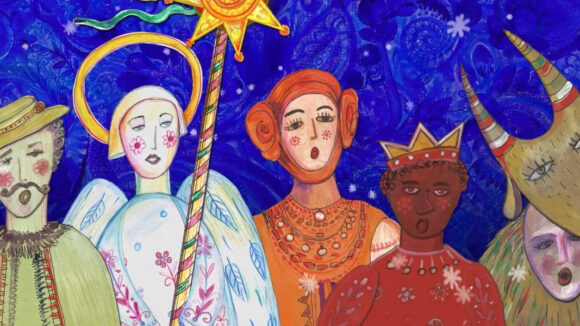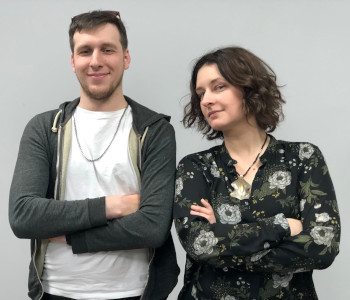

Animation And The Shock Of War: Siblings Mariia And Rodion Shub Discuss Life, Art, And The Ukrainian Diaspora
It has been nearly two since Russia invaded Ukraine on February 24, 2022, forcing countless people to flee their native land.
Mariia Shub is a Ukrainian artist and animator who was displaced to the U.K. by violence in her home country. She has served as an art director and production designer on several Ukrainian features and shorts, and in 2022, she made the animated short Little Wings with her brother, Rodion Shub, which went on to earn a nomination at the Ukrainian Golden Dzyga Film Awards.
Rodion, a producer and director, was displaced to Canada, 3,200 miles from his sister. He has animated sequences in several features, including Human with a Stool, It’s Just Space, and Tales of a Toy Horse. His studio, Ridni, recently put out a showreel, linked below.
The siblings are members of Screencraft Works, a non-profit organization that supports marginalized production and post-production workers to develop their careers in new communities. Screencraft Works co-director Elizabeth McIntyre recently met with the two to discuss how the war in their home country has affected them professionally, creatively, and personally. McIntyre has shared the details of their meeting with Cartoon Brew. A full transcript of the conversation is available here as a pdf.

Finding A Cultural Identity
According to the Shubs, Ukraine’s ability to express its cultural identity through contemporary media is a modern invention, as the shadow cast by the Soviet Union persisted for years after the end of that era. Rodion says that only about 20 years ago, Ukrainians started to recognize their identity and reflect that on stage, screen, and radio:
This began to happen in 2004 when I was still in school. And this continues to the present day. Throughout my life, I have witnessed the flourishing of Ukrainian culture, with the emergence of wonderful, diverse music in various genres, intriguing and powerful movies and documentary films, diverse festivals, and cultural events.
In 2017, the Ukrainian Cultural Foundation (UCF) was established, and over its five years of existence, it has supported numerous films, albums, festivals, and educational initiatives. “As an artist, I have benefited from this, receiving funding to contribute to various screen and educational projects,” says Rodion.
Artwork As A Means Of Expression
According to Mariia, her artwork has provided a way to express the shock of war. As she moved from place to place on her way to eventually settling in the U.K., she found solace in the act of creation:
I started to draw straight away after we arrived in Germany. I left many of my pictures over there in the houses of my friends. I also started to create mosaics. I was compelled to realize my shock of war in mosaics. I chose a big wall in a garden near the house of my German friends. We bought little pebbles from garden shops and super-cheap baubles in different colors. In white or yellow and black, and I started to make a huge mosaic in a garden. My telephone was on 24 hours a day to communicate with friends, check on my parents, and hear the news. So I just put my telephone near me and started to create my mosaic. I worked every day for two months, and it really helped me to avoid going crazy.
Conflict’s Effect On Creativity
Although her work allowed Mariia to focus on something beyond the events happening back in Ukraine, even if only for moments at a time, her creative process was unquestionably altered by them:
It’s difficult to describe how the pressures of war affected my creativity. At first, I wanted to stay firm and not change my style. I didn’t want to paint darkness or pain or show the turmoil of feelings I was feeling. So I tried – and still try – to paint very bright flowers on my canvases. The colors, in fact, became even brighter as the pressures of war increased – bolder and brighter.
Finding New Communities Through Animation
Rodion says that putting down roots in a new country has been a shocking experience but that the artistic community in Montreal has made the transition far easier than it could have been:
Quite quickly, I found new friends here, a community, and work. I have continued my career as a teacher here. I share my love of and passion for stop motion with children in schools. I had been teaching stop motion to children for 10 years in Ukraine, balancing my professional life between teaching and the production of commercial content, but here in Montreal, I have more teaching work.
During my time settling in Canada, I have had two projects as a director, one for the U.K. and one for Ukraine – but not yet for the Canadian market, which I would welcome. It was a joy to feel so alive again during my remote director work recently. I really miss my professional life as a director and yearn to do more again in this field.
Cross-Border Collaboration
In 2022, the siblings created the animated short Little Wings together, earning a Ukrainian Academy Award nomination. The short was commissioned by London-based digital design and communications agency AKQA to mark the 100th anniversary of the Ukrainian Christmas carol “Carol of the Bells.” Mariia worked on the short from London while Rodion worked in Montreal.
Mariia explained the process, saying:
I drew everything separately on watercolor paper, and then Rodion cut the pictures out digitally and animated them in Adobe After Effects. It was a combination between the real texture of watercolor paper and animation. We had just three weeks, so we combined our skill sets and tools: I made the flat watercolors, deliberately leaving the lines in a handcrafted style – all the characters were drawn separately.
Rodion added that throughout production, the two discovered new tools and methods that made remote working easier over time:
Mariia made some extra elements on the iPad in Procreate, including the animation of the shooting star. When I assembled everything and gave the pictures back to Mariia, she was not satisfied. Mariia’s a perfectionist, always ensuring her very best work. So, we found a new tool. I gave her back a .psd with all the layers already assembled; in this way, she was then able to add the occasional extra shadow where effective to do so, overdrawing; she basically could retouch it in a digital way, which was a new experience for her as she is not trained as a digital artist, yet she is able to adapt to new technologies and always rises to new challenges, as do I.
For those interested in learning more about cross-border collaboration, we recommend this Screencraft video from last October, which features the Shubs and other artists who have, for various reasons, been forced to collaborate across great distances.
Pictured at top: Little Wings

.png)